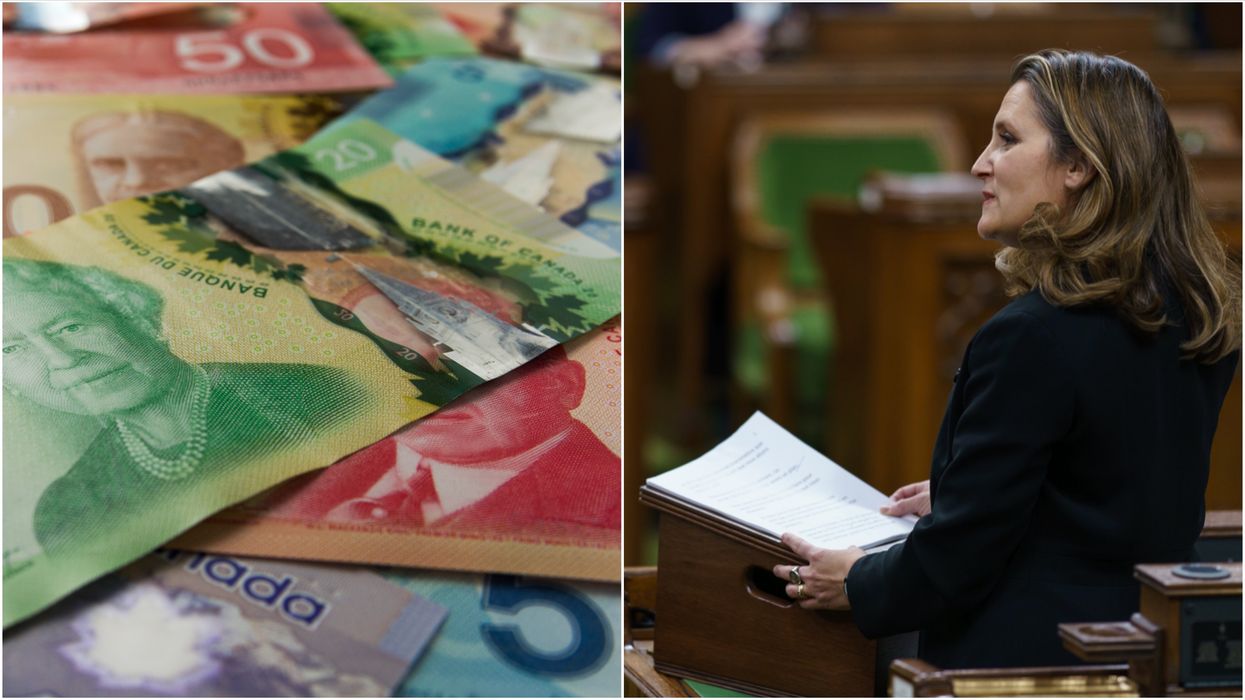The Government Announced New COVID-19 Supports & Here's What You Need To Know
During her fall economic statement on Monday, Finance Minister Chrystia Freeland unveiled plans for a number of new COVID-19 supports for Canadians.
Announcing the details on November 30, Freeland revealed that the government intends to spend up to $100 billion over the next three years, in an effort to kick-start an economic recovery post-pandemic.
While the majority of their goals aren’t set to kick in until after a vaccine has been distributed, a number of new programs have been announced to support Canadians until then.
This includes tax rebates for those working from home, financial support for low and middle-income families and additional jobs for young people.
If you think you could be eligible for any of these new schemes, here's what you need to know:
Editor's Choice:
Support for families
As part of Monday’s fall economic statement, the finance minister confirmed that additional support would soon be available for middle and low-income families.
Eligible Canadians will qualify for up to $1,200 for each child that’s under the age of six in 2021.
To get the full amount, you’ll need to be able to claim the Canada Child Benefit (CCB) and earn a net income of $120,000 or less.
Those who qualify for the money will get it automatically across four payments of $300, spread throughout the year.
Eligible families earning over $120,000 net income are still entitled to the support, but will receive 50% of the payments on the same schedule.
Around 1.6 million families are set to receive this temporary benefit, which is expected to cost the government $2.4 billion.
Federal tax rebates
If you’ve been doing your job from your home office, kitchen table or sofa recently, you might be able to claim some money from the government for it.
As so many Canadians are now working from home full-time, as per public health advice, the federal government has announced that those with “modest” WFH expenses will be able to claim them back.
The Canada Revenue Agency (CRA) will allow claims of up to $400 as a tax deduction, to cover the costs involved with steering clear of the company office.
The agency says they’re unlikely to ask for a detailed account of a claimant’s expenses, or even a letter from their employer.
Jobs for young people
As part of Monday’s announcement, Freeland confirmed that there would be additional support for young people looking for work.
The federal government is preparing to spend $447.5 million over the next two years, to fund 40,000 additional summer job placements for students and young Canadians.
This means by next year there will be around 120,000 placements available.
Scheduled changes to the current program include allowing employers to hire youth outside of the summer, as well as enabling employers to claim up to 100% of the minimum wage payments for each young person hired.
Millions will also be put aside for the Youth Employment and Skills Strategy, which aims to help young people whose jobs were affected by the pandemic find new opportunities.
